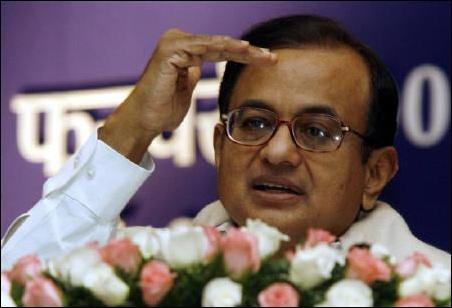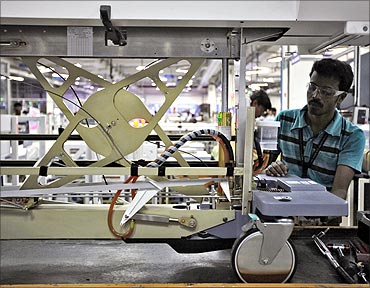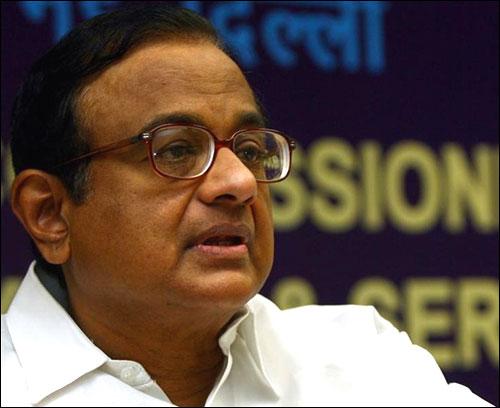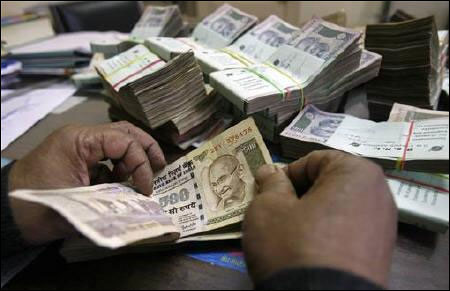 | « Back to article | Print this article |
Chidambaram unveils road map for fiscal consolidation
Worried over high budget deficit derailing growth, Finance Minister P Chidambaram on Monday unveiled a five-year road map for fiscal consolidation to promote investments, contain inflation and take India to high growth trajectory.
The government, the Minister said, will continue efforts to restrict fiscal deficit in the current financial year to 5.3 per cent of the Gross Domestic Product (GDP) and reduce it to 3 per cent by 2016-17. The fiscal deficit was 5.8 per cent in 2011-12.
"As fiscal consolidation takes place and investors' confidence increases, it is expected that the economy will return to the path of high investment, higher growth, lower inflation and long-term sustainability", he said.
Economic growth slipped to nine-year low of 6.5 per cent in 2011-12 and it is expected to fall further this fiscal.
Click NEXT to read more...
Chidambaram unveils road map for fiscal consolidation
Referring to fiscal consolidation in 2012-13, Chidambaram expressed the confidence that government would be able to raise Rs 30,000 crore (Rs 300 billion) from disinvestment and Rs 40,000 crore (Rs 400 billion) from sale of spectrum.
As regards the revenue targets, he said, "every effort will also be made to realise the revenue budgeted under tax receipts. Government also expects to be able to contain and economise on expenditure, both on Plan and non-Plan side.
"While funds will be made available for essential expenditure, especially capital expenditure, every effort will be made to avoid parking or idling of funds," he said.
Click NEXT to read more...
Chidambaram unveils road map for fiscal consolidation
The government had budgeted the fiscal deficit for 2012-13 at 5.1 per cent. However, as per the consolidation roadmap, it is expected to be 5.3 per cent of GDP.
Chidambaram said, "5.1 per cent was very challenging. After looking at all the factors we think 5.3 per cent is do-able and we intend to work hard and achieve that.
"This plan is necessary, this plan must be implemented and government is very serious about implementing this fiscal consolidation plan."
The roadmap follows the recommendation of the Vijay Kelkar-headed Committee which had suggested that the government should undertake reform initiatives, go ahead with disinvestments and reduce subsidies, without which fiscal deficit could shoot up to 6.1 per cent in 2012-13.
Click NEXT to read more...
Chidambaram unveils road map for fiscal consolidation
Chidambaram said the government is determined to address the twin challenges of current account deficit (CAD) and fiscal deficit.
He said the CAD is expected to come down to $70.3 billion or 3.7 per cent of GDP in the current fiscal, from $78.2 billion or 4.2 per cent in 2011-12.
"Government is confident that the CAD will be fully financed by capital inflows, and expects that a substantial part of it will be in the form of Foreign Direct Investments (FDI), foreign institutional investment (FII) and External Commercial Borrowings (ECBs)," Chidambaram said.
Click NEXT to read more...
Chidambaram unveils road map for fiscal consolidation
When asked about the introduction of the amended Direct Taxes Code (DTC) Bill, Chidambaram said, it is under review and would be presented to Parliament after taking into account the recommendations of the Standing Committee.
"A quick review of DTC Bill will be done. We are looking at the Bill that was introduced, at the standing committee's recommendations. We are also looking at current economic situation and therefore final version of bill that will be introduced in Parliament will reflect all these. By and large we will have to abide by Standing Committee recommendations," he said.




